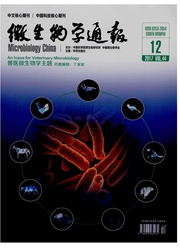

 中文摘要:
中文摘要:
在全球气候环境演变的背景下,认识海洋微型生物对碳循环的贡献,需要了解其过程和机制。最近提出的“微型生物碳泵”理论阐释了海洋储碳的一个新机制:微型生物活动把溶解有机碳从活性向惰性转化,从而构成了海洋储碳。这个过程当中,自养与异养细菌、病毒、原生动物等具有不同生理特性微型生物类群扮演着不同的生态角色,本文将围绕微型生物碳泵主线分别论述之。
 英文摘要:
英文摘要:
The oceans are full of microorganisms, which play a significant role in global carbon cycle. Microbial carbon sequestration in the ocean, as a cutting-edge scientific issue, receives a great deal attention in the context of global climate change. Based on the microbial carbon pump conceptual framework, microbes are major producers of recalcitrant dissolved organic carbon (RDOC) that can stay in ocean water column for long time storage. Different microbial groups contribute to RDOC carbon pool in different ways. This paper addresses groups such as autotro- phic and heterotrophic microorganisms, viruses and protozoa with respect to their various eco- logical characteristics and specific roles in RDOC formation.
 同期刊论文项目
同期刊论文项目
 同项目期刊论文
同项目期刊论文
 The research of typical microbial functional group reveals a new oceanic carbon sequestration mechan
The research of typical microbial functional group reveals a new oceanic carbon sequestration mechan Present and future global distributions of the marine Cyanobacteria Prochlorococcus and Synechococcu
Present and future global distributions of the marine Cyanobacteria Prochlorococcus and Synechococcu Euryhalocaulis caribicus gen. nov., spnov., a new members of the family hyphomonadaceae isolated fro
Euryhalocaulis caribicus gen. nov., spnov., a new members of the family hyphomonadaceae isolated fro Sulfur Metabolizing Microbes Dominate Microbial Communities in Andesite-Hosted Shallow-Sea Hydrother
Sulfur Metabolizing Microbes Dominate Microbial Communities in Andesite-Hosted Shallow-Sea Hydrother Formation of Polyhydroxyalkanoate in Aerobic Anoxygenic Phototrophic Bacteria and Its Relationship t
Formation of Polyhydroxyalkanoate in Aerobic Anoxygenic Phototrophic Bacteria and Its Relationship t Altuibacter lentus gen. nov., sp. nov., a novel member of family Flavobacteriaceae isolated from dee
Altuibacter lentus gen. nov., sp. nov., a novel member of family Flavobacteriaceae isolated from dee Drivers shaping the diversity and biogeography of total and active bacterial communities in the Sout
Drivers shaping the diversity and biogeography of total and active bacterial communities in the Sout Draft genome sequence of Euryhalocauliscaribicus strain JL2009T, a new member of the family Hyphomon
Draft genome sequence of Euryhalocauliscaribicus strain JL2009T, a new member of the family Hyphomon Roseibacterium beibuensis sp nov., a Novel Member of Roseobacter Clade Isolated from Beibu Gulf in t
Roseibacterium beibuensis sp nov., a Novel Member of Roseobacter Clade Isolated from Beibu Gulf in t Altuibacter lentus gen. nov., sp nov., a novel member of family Flavobacteriaceae isolated from deep
Altuibacter lentus gen. nov., sp nov., a novel member of family Flavobacteriaceae isolated from deep Euryhalocaulis caribicus gen. nov., sp nov., a New Members of the Family Hyphomonadaceae Isolated fr
Euryhalocaulis caribicus gen. nov., sp nov., a New Members of the Family Hyphomonadaceae Isolated fr Pacificamonas flava gen. nov., sp. Nov., a novel member of the family Sphingomonadaceae isolated fro
Pacificamonas flava gen. nov., sp. Nov., a novel member of the family Sphingomonadaceae isolated fro Molecular Detection of Candidatus Scalindua pacifica and Environmental Responses of Sediment Anammox
Molecular Detection of Candidatus Scalindua pacifica and Environmental Responses of Sediment Anammox Revisiting the CO2 “source” problem in ocean upwelling areas - a comparative study on eddy upwelling
Revisiting the CO2 “source” problem in ocean upwelling areas - a comparative study on eddy upwelling Perspectives of the microbial carbon pump with special references to microbial respiration and ecolo
Perspectives of the microbial carbon pump with special references to microbial respiration and ecolo 期刊信息
期刊信息
